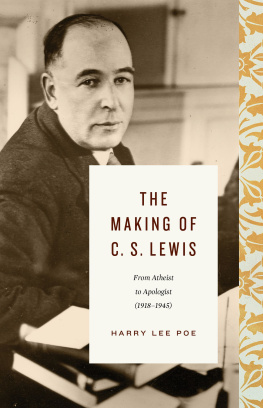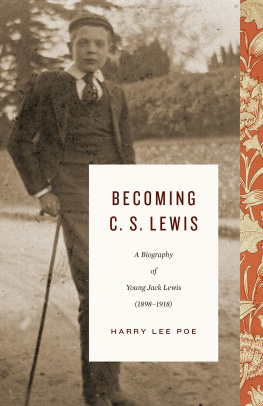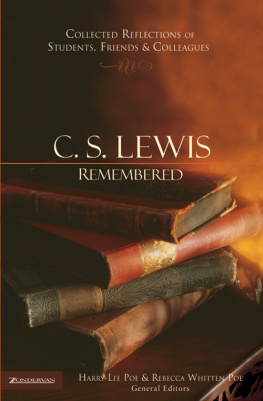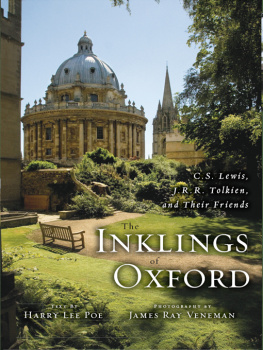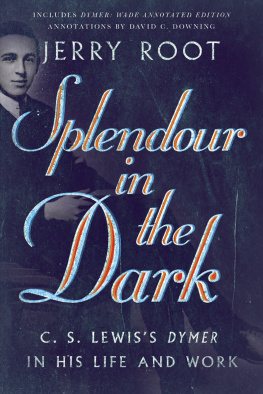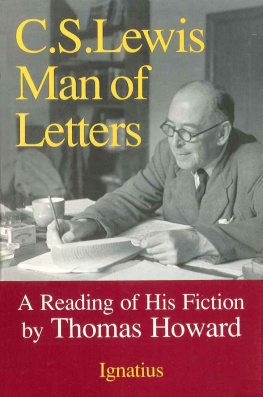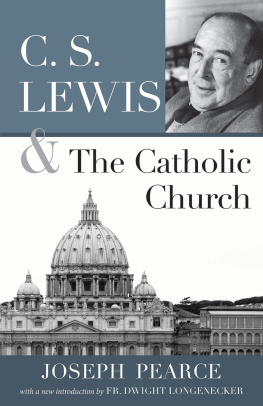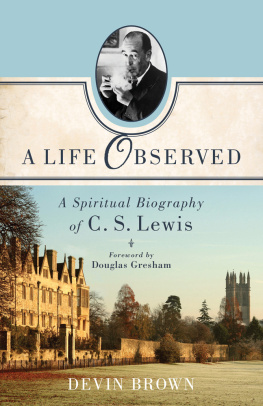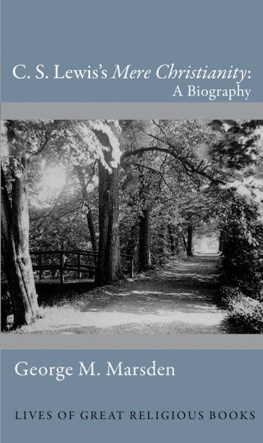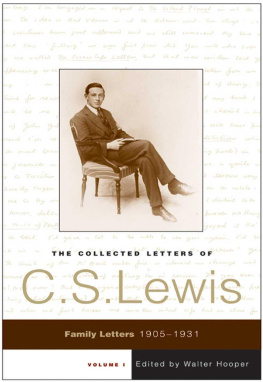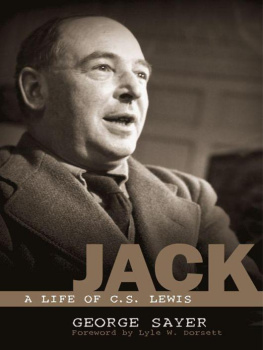Table of Contents
Landmarks
19391941
C. S. Lewis liked to tell people that he never read the newspapers, which provided him with a platform to discuss all that was wrong with journalism and the popular press. He had developed his prejudice against the press from his childhood when his father repeated what he had read in the newspapers. Albert would critique the papers with his usual flair for the overdramatic, which served him so well in the police court of Belfast. W. T. Kirkpatrick had instilled in young Jack a suspicion and skepticism regarding the presss tendency to favor one political party over another, to either attack or defend the government, and in general to create a market in which to sell papers.
Jacks claim of never reading the newspapers was almost true. He explained that if anything important happened, someone was sure to tell him. Mrs. Moore constantly told him about what she had read in her newspapers, but she had a preference for the kinds of papers that featured the latest scandal and gossip among the rich and famous. During breakfast at Magdalen College, Lewis could expect to hear in some form or other what the papers had to say that day from the perspective of his colleagues.
In fact, Lewis did read the newspapers when something important was happening. During the
The Gathering Cloud
Lewis had expressed his contempt for the Nazi regime in Germany as early as 1933 in the way he presented Hitlers ideology in The Pilgrims Regress . By the time Hitler annexed Austria in March 1938, however, Lewis began to fear war looming. He mentioned his growing concern over the danger of war in a letter to Dom Bede Griffiths in April 1938. Concerned as he was about the danger of war, he was no less concerned that his fortitude and reliance on God had not grown more than it had since his conversion. He realized how much his happiness depended on his physical condition, and he began to realize what part physical affliction might play in ones spiritual growth.
In fact, when he wrote The Screwtape Letters , death proved to be the way out for the patient.
Lewis never strayed far from his love of the chivalric tradition he had found in his books, which had motivated him since his decision to fight in World War I.
His brooding on the coming war also led Lewis to ponder more deeply what part God played in such disasters of human making. His dread of war with all its loss led him to think that only such disasters lead people to escape their worldliness and grasp more eternal things. He thought that human behavior forces God to surgical treatment.
As we have seen, he went on holiday with Mrs. Moore and the Kilns household every August or September for several weeks. In the midst of the Great Depression, Lewis had a good life.
As wars dark shadow lengthened, Lewis wondered if he or some of his friends might die in the coming conflict. Though he had lied to his father about the aerial attacks of the German zeppelins during World War I, he knew full well that the coming war would be waged against civilians as much as soldiers. He wrote to Barfield that if they were separated, he wanted him to know how much their friendship had meant to him. He added, In some ways weve had a corking good time these 20 years.
They first stopped at The Trout in Godstow, at the far end of Port Meadow from Oxford. Havard recalled that they arrived just before the inn closed, so they must have left late in the day, since The Trout is only about three miles from Folly Bridge. It also means that The Trout must have closed early on a Saturday evening in 1939. They cruised on past Wytham Great Wood where the Thames makes a wide bend and then on southwestward to Newbridge, where Lewis and Dyson stayed at the Rose Revived
Even as the ditch crawlers made their way back to Oxford on Monday, Warnie boarded a train to take him back into the army to serve king and country. Why had he not made the trip? As a retired officer, Warnie was placed on the reserve list, and as European acrimony increased, he would have been informed of the likelihood of his recall to active duty. Warnie probably knew he would have to report for duty and needed to put his affairs in order. If the crisis came over the weekend, as it did, he needed to be ready to report immediately. The real question is why Jack would have taken the river cruise without him. He had been anticipating the war for over a year. He knew Warnie would have to go. Perhaps he could not stand the thought of sitting idly by and watching his brother go off to what they both knew would be a dreadful war from which Warnie might not return.
The Changing Homefront
When Warnie left for his posting at Catterick in Yorkshire, a small group of three schoolgirls arrived at the Kilns, the first of a series of evacuees from London who would stay at the Kilns during the war.
The Nazis would not be given the satisfaction of closing the universities.
Lewis really did not have time for a war. His schedule was full.
In the end, Williams lodged with the Spalding family on South Parks Road near Parsons Pleasure. Ruth Spalding, one of the Spalding daughters, had produced Williamss play Seed of Adam at the University Church of St Mary the Virgin, at which time Williams made her acquaintance. Through the Spaldings, Williams got to know Dorothy L. Sayers better. They had met before the war, but she was a friend of the Spaldings and stayed with them when she visited Oxford.
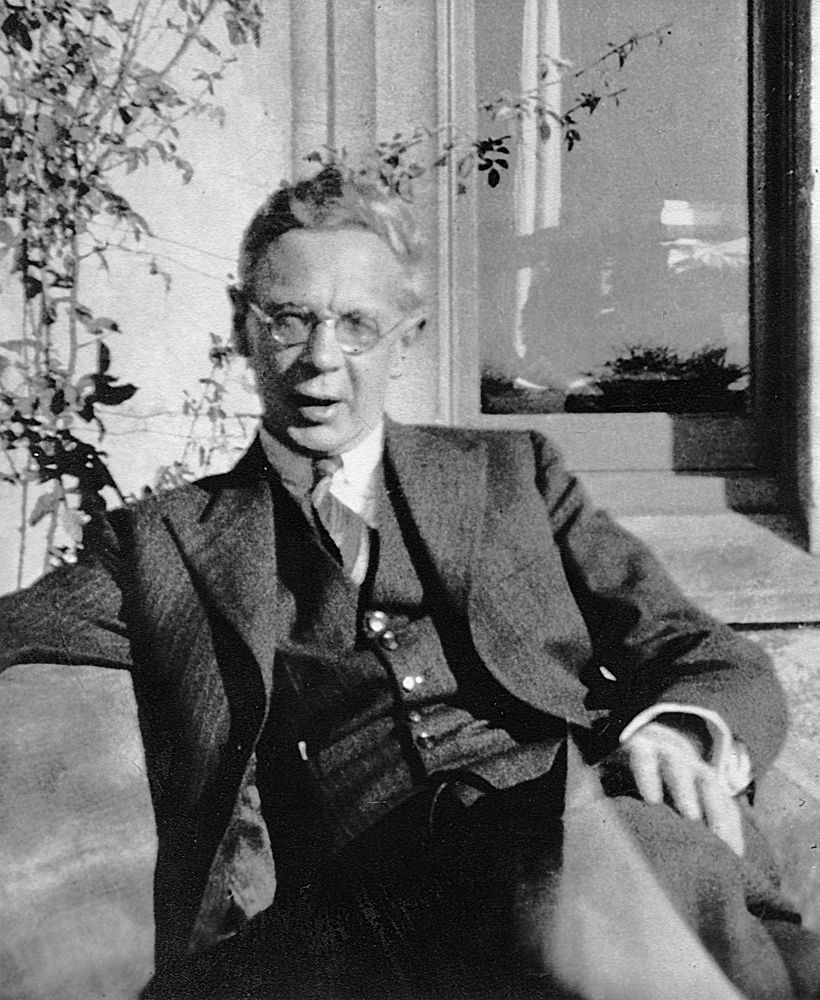
Charles Williams outside the Spaldings home, Oxford. Used by permission of the Marion E. Wade Center, Wheaton College, Wheaton, IL.
He seemed to be sending a cryptic message to his wife that he would much prefer to be back in London with her on a Friday night. Williamss desire to be home in London on Friday night may be why the Inklings eventually settled on Thursday evening as their regular meeting time. As the months passed, Lewis also found that his Friday evenings had to be spent traveling to speak in far-flung parts of the kingdom.
In this lecture, for it is not really a sermon, Lewis began by defining a university as a society for the pursuit of learning and then asked two basic questions: (1) Why would one begin an education with so little chance of completing it? (2) How can someone occupy himself with the pursuit of learning when lives and liberty are at stake in a great war?
Despite his earlier rebuke of his rector, Lewis said that he did believe their cause to be righteous and therefore a religious duty. While his audience might be called upon to die for their country, they should never think of living at all for their country. Gods claim on us is higher than the claim of culture. Nonetheless, cultural life will exist alongside the church, and Christians with the capacity have a duty to pursue learning. Lewis argued that good philosophy must exist, if for no other reason, because bad philosophy needs to be answered. In the end, it was a question not of whether the undergraduates of 1939 would have time to finish their program of study but of what they would make of their time while they had the opportunity to study.
When Joy Davidman came to live at the Kilns years later, the blackout curtains still hung on the curtain rods.
Two weeks into the war, Jack wrote to Arthur to say that his nerves were staggered, but his faith remained sound. He did not doubt that God would ultimately bring good from all the suffering they faced if they used the war properly. He had the ghastly feeling that he had been through it all beforethat he had fallen asleep at the end of the last war to dream a lovely dream, only to awake to the war once again. suffering.

